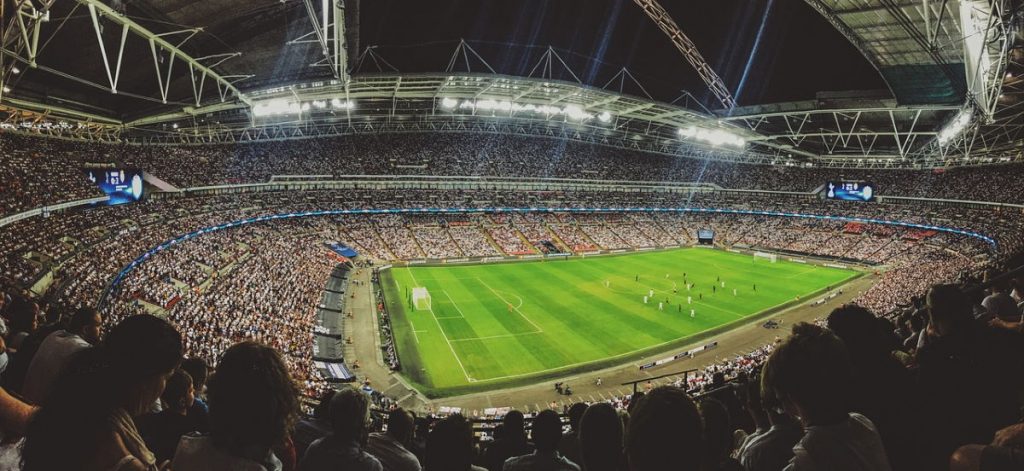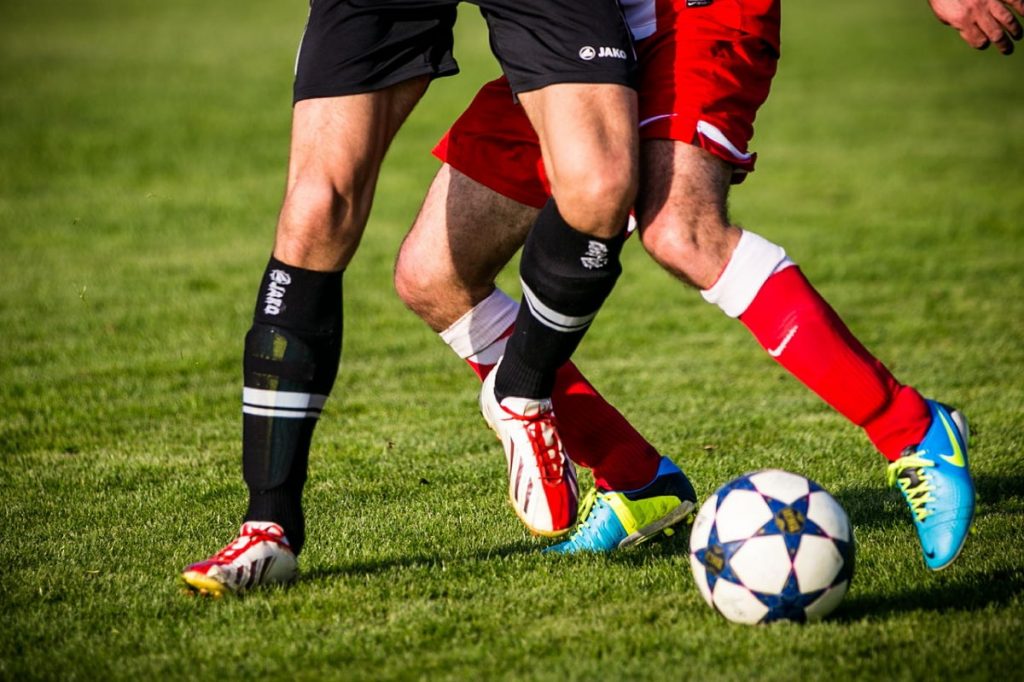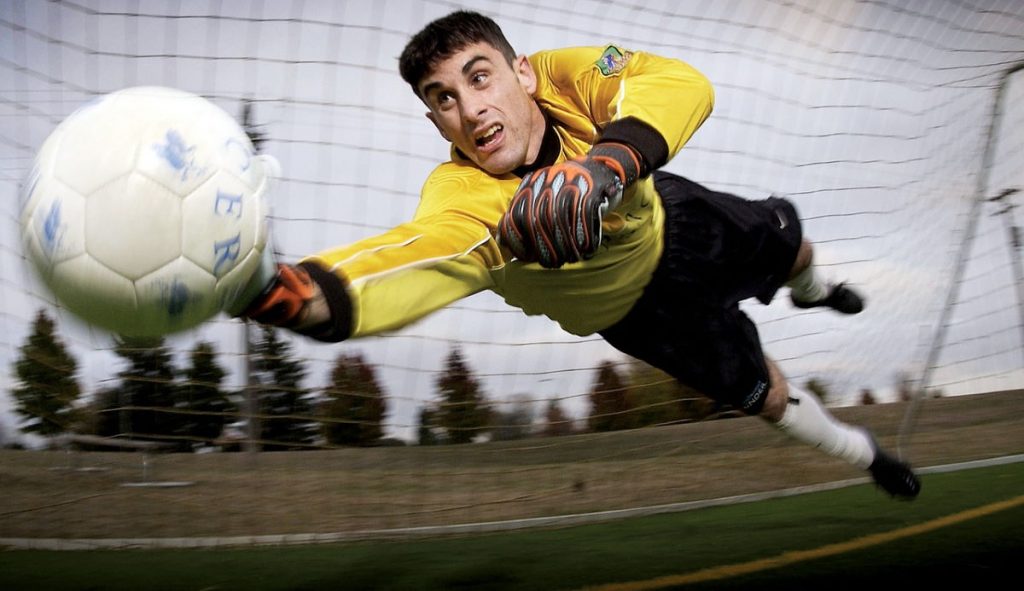With more than 4 billion fans, soccer remains the most popular sport around the globe. Wherever you go, you will find people playing soccer or cheering their favorite team. But with so many people playing it, the competition to become a professional footballer are immense. Only a few players manage to make it to the top of the game and earn the fame and fortune that comes with being a professional soccer player. If your dream is to become a professional soccer player, then you should be ready to improve all aspects of your game. Here are some tips that will help you to improve your soccer skills and become one of the best soccer players.
Practice Consistently
You might have probably heard people saying that someone was born a natural soccer player. As much as you might be naturally gifted, you also need to practice consistently, if you want to become a great soccer player. Talent alone might not be enough to propel your career where you want it to go. First, make sure you master proper ball control. To be an elite soccer player, you need to have a great first a touch. The first touch will determine whether you will retain the ball or you will lose it to your opponents. Most academies will require all their players to kick a ball against a wall for a few minutes before every practice session – switching between the feet. Kicking a ball against the wall as you alternate from one foot to the other will help you to enhance your ball control skills.
Also, make sure that you train your weaker foot. If you can control the ball properly with both feet, then you will be miles ahead of other soccer players. Therefore, you should not take it for granted. If you can strengthen your weaker foot early in your career, then the chances of becoming an elite footballer are high. For example, if you are a center-back, mastering proper ball control with both feet can get you out of dangerous situations and even help your team to win matches. On the other hand, if you are a striker and you always have to switch the ball from your weaker foot to your stronger foot, then you will be giving the defender enough time to dispossess you.
You also need to learn how to dribble and control the ball in tight areas. And this applies to everyone, from goalkeepers, defenders, midfielders, and strikers. Even if you are a defender, proper ball control skills are vital. For example, you might receive the ball from your goalkeeper, a fellow defender or a midfielder. And if you lack proper ball control skills, an opponent might close you down fast, thus putting your team under unnecessary pressure. Pre-season provides a perfect opportunity to work on your first touch, train your weaker foot and enhance your ball control skills.
Enhance Your Game Intelligence
While soccer is more of a physical game, game intelligence is equally important, if you want to become an outstanding soccer player. Game intelligence features 3 main skills – spatial awareness, risk assessment, and tactical knowledge. Spatial awareness refers to your ability to space across the whole pitch and then leverage it to your advantage. Depending on the position of the ball, you need to know where your teammates are, as well as the moves they might make. You also need to know where your opponents are. It’s also important to learn how to position yourself in relation to your teammates. Intelligent players are always weighing the risks versus the benefits of their decisions on the pitch. Developing and enhancing your game intelligence takes time, plenty of learning and experience. But as long as you put in the effort to learn, you will eventually acquire this vital skill.
Get Proper Soccer Cleats
Soccer cleats or soccer shoes are an essential piece of equipment for every soccer player. Unless it’s a training session, a normal game of soccer usually lasts 90 minutes. During the game, you will be running around, grappling for the ball with opponents, and kicking the ball. In short, you will be on your feet during the entire period. Therefore, ensuring your feet are comfortable and well protected during that session is vital. Also, soccer involves plenty of running as well as sudden direction changes. A proper pair of cleats will grip the surface during these movements, thus preventing slipping and sliding hazards. Cleats are also going to protect your feet against the various elements that you might come across on the pitch.
Cleats fall under 3 main categories – firm ground cleats, soft ground cleats, and artificial turf cleats. It’s important to note that you can only improve your game if you are wearing the right type of cleats for the surface you are playing on. For instance, if you are wearing artificial turf cleats when playing on a hard playing surface, then you will struggle to achieve peak performance levels. On the other hand, if you are wearing hard ground cleats when playing on a soft surface, then it will not be easy to move the ball around. Therefore, when it’s time to purchase soccer cleats, make sure they are comfortable, sturdy and specifically designed for the surface you will be playing on.
Pay Attention to Your Diet
During a soccer game, you will be in constant motion for 60 to 90 minutes. And with all the kicking, dribbling and running, you will need strength, balance, and endurance. While regular practice and training are a vital part of improving your skills, you cannot overlook the importance of a proper diet. If you want to become a better soccer player, then you need to get your diet right. Knowing what to eat and when will help you to achieve your objectives within a shorter period.
As a soccer player, you need to eat regular, proper meals, so that you can maintain peak energy levels, whether you are playing or not. Therefore, your breakfast, lunch, and dinner, should be packed with adequate amounts of carbohydrates, proteins, and fats, to ensure your body gets all the nutrients required. As much as calorie needs vary from one player to the other, every meal that you consume should have at least 500 calories – with most of the calories should coming from carbohydrates. Ideally, you should get approximately 60% of your total calories from carbs, 25% from fat and 15% from protein. Carbohydrates will supply your body with energy, proteins will boost muscle recovery and growth while fats will provide additional energy. However, make sure that you choose healthy sources of fats such as fatty fish, nuts and oils. Avoid fried foods as much as possible.
You should take your breakfast within 2 hours of waking up. If you have a practice session in the morning, then you should take your meal at least 2 to 3 hours before. Your breakfast should include whole grain, ready-to-eat cereal, low-fat milk, blueberries, and low-fat cheese. For lunch, you should have a sandwich, lean turkey or red meat, whole-wheat bread, an apple, low-fat yogurt, mixed greens, and almonds. Just like lunch, your dinner should be packed with carbohydrates and proteins. It’s also advisable to take a snack between lunch and dinner, to supply your body with ample energy for an evening practice session. Make sure every meal has a vegetable or fruit, to maximize nutrient intake.
Hit the Gym
Explosiveness, speed, agility, and stamina are all key attributes of professional soccer players. Thus, apart from a strong skill set and a balanced diet, you need to be physically fit, if you want to take your soccer skills to the next level. For example, you might be highly skilled when it comes to shooting and dribbling. But, if a simple nudge is enough to dispossess you due to lack of stamina, then you may never achieve your dream of becoming a great soccer player. Strength training and conditioning is vital for all soccer players. It offers incredible benefits such as:
- Higher Energy Levels: Just like other contact sports, stamina is of the utmost importance when it comes to soccer. And building your core strength will come in handy when it comes to stamina. If you lack strength, then the opposition players will always pick you out and exploit your weakness to attack your team.
- Avoid Injuries: Injuries can prevent you from achieving your potential as a professional soccer player. As much as some injuries are unavoidable, some occur due to lack of proper fitness and conditioning. Good strength training can help you to avoid most of the muscle strains that occur during the game. By maintaining peak fitness levels, you will spend more time playing and enhancing your skills. On the other hand, if you are always getting muscle strains due to poor conditioning, the chances of becoming an elite soccer player are slim.
- Faster Recovery: At the end of a game or practice session, you might end up feeling tired or worn out. Fortunately, if you are in great physical shape, then your recovery will be shorter, compared to someone who is not physically fit. Faster recovery increases your chances of playing more matches – which means more opportunities to enhance your footballing skills.
Some of the best exercises that you can use to build strength and improve your physical fitness include; agility ladders, calf raises, dumbbell step-ups, plyometrics, squats, lunges, shoulder rotations, and kettlebell swings, just to name a few. The game of soccer is explosive and fast at all levels. Therefore, maintaining peak fitness levels at all times is extremely vital, if you want to climb the soccer pyramid.
Closing Remarks
If you want to become a successful soccer player, then you must be ready to invest a considerable amount of your time and effort, working on the different areas of the game. Also, you must be patient and be willing to learn. The good news is that there is always room for improvement – regardless of your age or playing abilities. With the help of the above tips and strategies, you will become a better football player, and always among the first on the team sheet. And who knows, you might even be a future winner of the prestigious Ballon d’Or.




0 comments